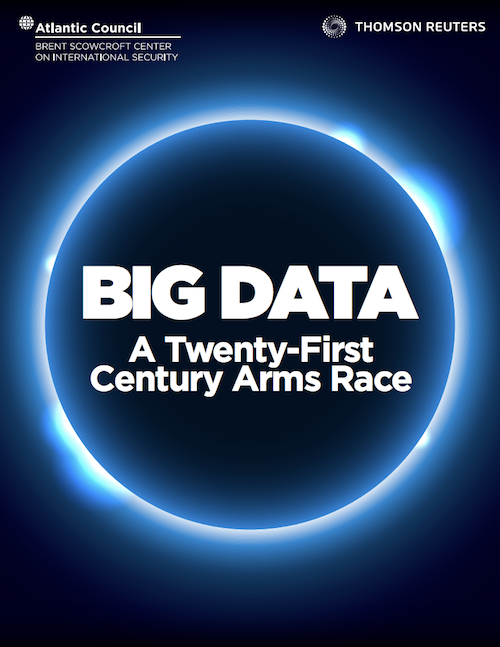The data revolution is creating a new toolkit for banks, law enforcement agencies and regulators to combat financial crime, yet the ability to identify illicit money flows and reveal hidden relationships could be impeded by conflicting privacy laws and inconsistent financial regulation across the globe.
This is the view of Big Data, A Twenty-First Century Arms Race, a recent report published jointly by us and leading American think tank The Atlantic Council.
The privacy challenge to Big Data

Big Data: A 21st Century Arms Race.
Data protection laws are not only strict and complex, they also differ widely between jurisdictions. A bank screening a new corporate client will typically access data from one or more jurisdictions and store that data in another. With different national rules applying, banks can face conflicts of laws where, by complying with one region’s laws, they are breaking another’s. By increasing the amount of information available, the data revolution is likely to magnify these conflicts unless the problem is addressed as a matter of urgency.
In the meantime, many organizations are taking advantage of anonymization techniques to satisfy the legal requirements on the use of personal data. But this must also be carefully managed because when multiple data sources are combined, as is increasingly the case, personal identifiers can emerge.
With national and international privacy laws so complex to navigate, many organizations are turning to third-party solutions. World-Check ensures that all financial crime data is collected, structured and monitored in line with strict global data privacy policies.
Inconsistent regulation creates opportunities for criminals
The Financial Action Task Force (FATF) 2012 recommendations have become the blueprint for combating money laundering and terrorism financing. Yet there are inconsistencies in the way the 35 members apply them. For example, not all criminalize money-laundering offences.
This could mean that, however powerful Big Data is in the fight against financial crime, perpetrators will be able to evade punishment by targeting cross-border discrepancies.

The identification and monitoring of politically exposed persons (PEPs) is another area to highlight. Big Data can help banks with this important task, but definitions of PEPs vary across regulators and there is inconsistency as to whether banks can monitor domestic PEPs as well as international ones.
A global priority
The report calls for the current lack of consistent regulation to be tackled as a global priority and for the tension between privacy and disclosure to be addressed.
The right information is key
Making the most of Big Data’s ability to help predict, prevent and punish financial crime will mean having access to the right information.
World-Check is used by law enforcement agencies, regulators, banks and corporations globally, regionally and locally. By making sense of vast amounts of open source information, it can be used to uncover instances of human trafficking and slavery, while also reducing the risks of bribery and other financial crimes.
The World-Check database of PEPs and heightened risk individuals and organisations is used around the world to help to identify and manage financial, regulatory and reputational risk. Thousands of links between subjects on official lists and associated business partners, legal entities and PEP family members can be uncovered through our global media research.

